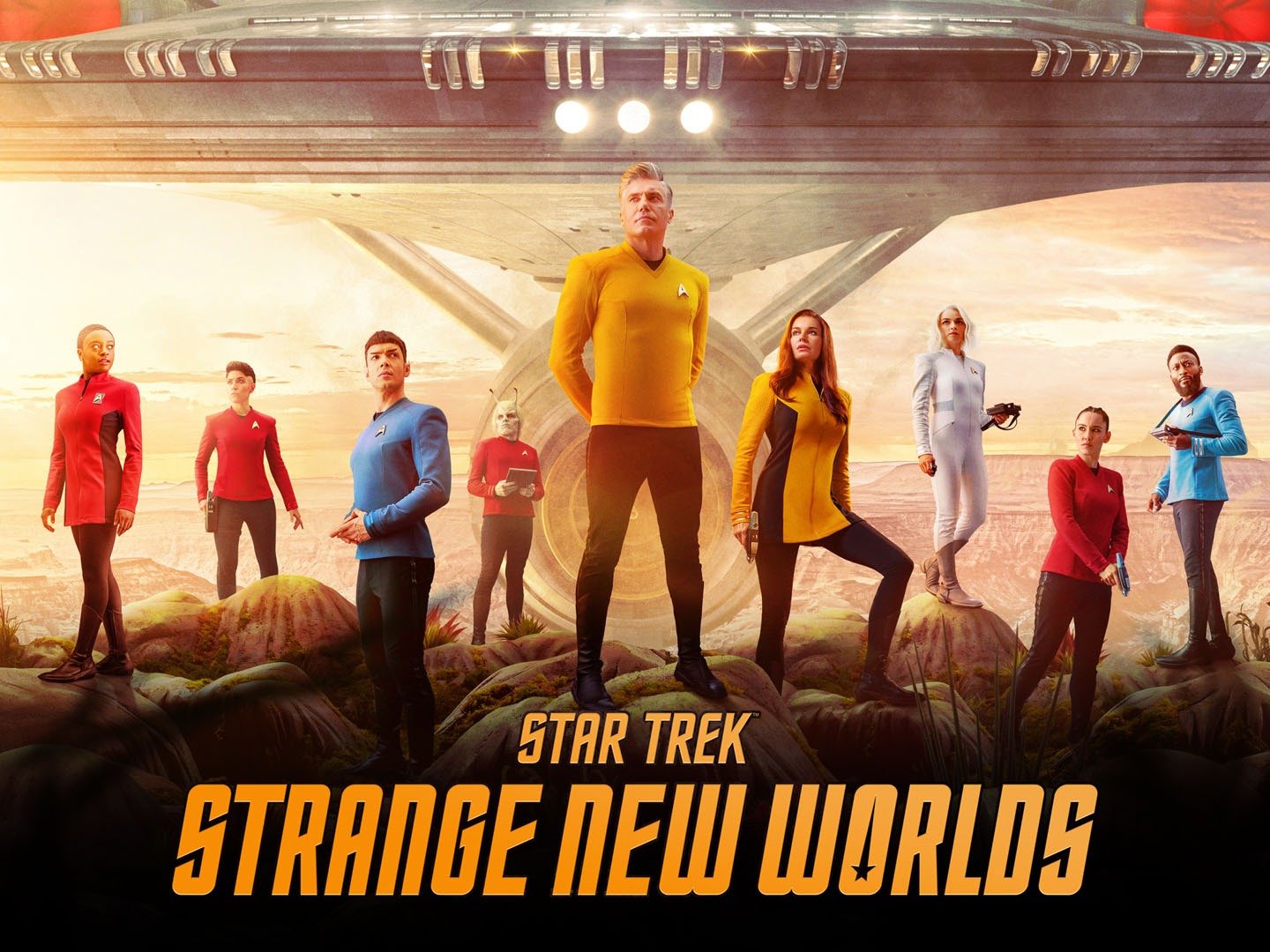I had a pretty good reaction to the first half of Star Trek: Strange New Worlds:
I finished the first season yesterday with an Aliens homage, a faint call back to Shore Leave from the original series (TOS), and a sort of What If? episode built around the events in Balance of Terror from TOS.
The Rolling Stone review I linked to above continues to feel mostly true to me: The tilt toward the episodic and the willingness to be a little corny evoke the original series and its particular kind of optimism. And there are all kinds of episodes: light ones, heavy ones, “some crucial piece of information about this culture is missing” ones.
What else is there to like?
Since Uhura, Chapel, and Spock are all featured characters, we get their early stories. It’s not hard, regrettably, to improve Chapel from the original series, but they’re good improvements. We don’t have a ton of Uhura’s backstory, so their choices with her don’t really run into the teeth of dreaded fidelity to canon. Spock works pretty well for me, and they are willing to fly close to the sun with the Spock-centric plots and beats, so also cheers to their boldness.
I like they way they’ve squared visual design with TOS. The uniforms keep the color scheme, the materials sort of blend Abram’s Kelvin timeline uniforms with TOS, devices look a lot like their TOS counterparts where it makes sense, with modernizing upgrades to their functionality where CG allows. Spock still has his ViewMaster/microfilm reader science station thing. There are Jeffreys Tubes.
None of that really goes to why I feel so warmly toward it, though.
When the original series was too self-aware, it was in the meta of a particular generation of producers and writers making a television series: It was a generation that had come up under television with the idea that it was a way to put theater in the home. The captain was a Shakespearean actor, the blocking sometimes felt very stage-like. It was broad. When it was high-minded, it was in a particular Greatest Generation Puts on a VoA Show kind of way.
I didn’t respond well to Star Trek: The Next Generation partially because its self-consciousness included too much of a sense of itself as a broad corrective for TOS’s worldview. It’s a fine line writing parables and morality tales with science fiction. Things have to stay anchored in the present on some level, so the audience can latch onto the analogies and metaphors and extract the lesson, but too much and you over-correct into presentism. Personally, I think The Next Generation didn’t manage the balance. It was too pleased with itself for daring to critique a beloved series for being too pleased with itself, and that made its hypocrisies glaring.
As what is now the other bookend for the original series, Strange New Worlds has gone another direction. There is still the notion of humanity as a project of continuous improvement, but it has gone in another direction from most other reboots, prequels, sequels, etc. in that its 23rd century feels so much less self-conscious. Specifically, so much less in reaction to the present. It subverts our understandings of characters from the original series that we simply knew to read a certain way based on the cultural context from which that series arose, but with much less didacticism than The Next Generation. It suggests, in a way I would have told you sight unseen is incompatible with current sensibilities about how entertainment is supposed to work, that there is a point to all the struggles we deal with today that lies beyond living in a state of permanent cultural dominance. That the point is not reviving 20th century troglodytes from suspended animation so we can lecture them about our transcendence of capitalism, or defending 24th century humanity’s right to exist by joining an omnipotent pure energy being’s condemnation of 20th century humanity. That the point of all the struggle is to get to a better present where people can simply be in a more just universe. It’s a vision of people living in a better tomorrow so far removed from our own that they don’t even talk about what it’s like to live there … they just live there. It simply feels less didactic and more genuinely optimistic. That surprises me, because that is not The Current Mood. The show’s writers have figured out a special kind of balance. Strange New Worlds wears its values confidently.
So I think that’s why I’ve allowed each episode, even the ones drawing on the faces of Trek I have liked the least as a life-long fan, to hit me on whatever emotive level it is going for. By feeling less choked with self-awareness, it opens up space to just be in that universe with those people and engage with the material with more vulnerability.
